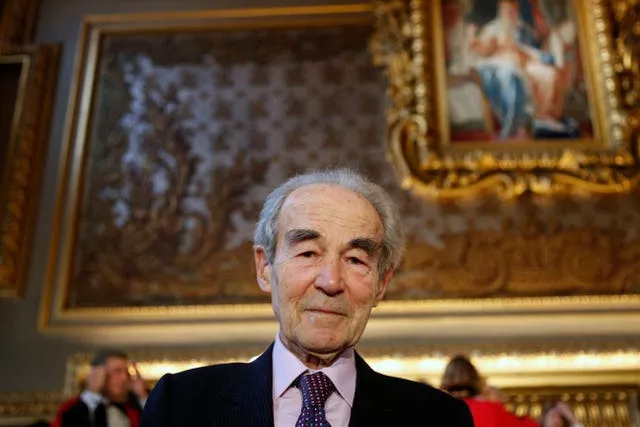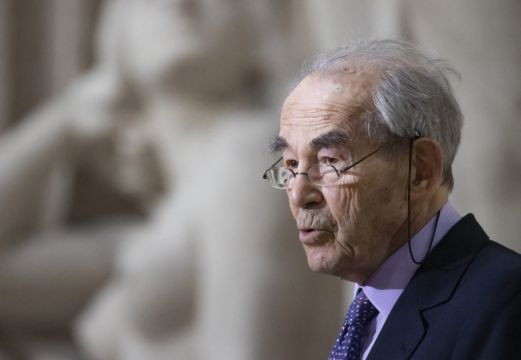Robert Badinter, who spearheaded the drive to abolish France’s death penalty, campaigned against antisemitism and Holocaust denial and led a European body dealing with the legal fallout of Yugoslavia’s breakup, has died. He was 95.
French President Emmanuel Macron hailed Mr Badinter, a revered human rights defender and former justice minister, as a “figure of the century” who “never ceased to advocate for the ideas of the Enlightenment”.
The French Justice Ministry on Friday confirmed Mr Badinter’s death, without providing details.

A famed lawyer and thinker, Mr Badinter was best known for his sustained push to end capital punishment.
He described seeing one of his own clients lose his head to a guillotine, which was used up until the 1970s to kill criminals in France.
Over his career, he saved six men from execution, eliciting death threats in the process.
As justice minister under then-President Francois Mitterrand, Mr Badinter overcame public opposition and won parliamentary support for abolishing the death penalty in 1981.
Born in Paris in 1928 to a Jewish family, Mr Badinter saw Nazi horrors and France’s collaboration up close during World War II, and lost his father in the Sobibor death camp, according to Mr Macron’s office.
As a lawyer, Mr Badinter later pursued a notorious Holocaust denier in court.
Mr Badinter went on to lead France’s Constitutional Court, served as a senator for 16 years and was seen as a moral compass for many in France for his defence of human rights.

In 1991, Mr Badinter led an arbitration body set up by the European Economic Community to provide the Peace Conference on Yugoslavia with legal advice after two of the country’s six republics – Slovenia and Croatia – had declared independence.
The Badinter Commission, as the body became known, was made up of presidents of constitutional courts of the member nations of the EEC, a precursor to the EU.
The Badinter Commission issued 15 legal opinions between 1991 and 1993, including one saying that the Socialist Federal Republic of Yugoslavia had dissolved.
It paved the way for international recognition of Slovenia and Croatia as sovereign countries in 1992.
The Badinter Commission also declared the borders between former Yugoslav republics as international frontiers between newly independent countries that could only be changed through diplomacy, and not by force.
Avocat, garde des Sceaux, homme de l’abolition de la peine de mort. Robert Badinter ne cessa jamais de plaider pour les Lumières. Il était une figure du siècle, une conscience républicaine, l’esprit français. pic.twitter.com/3IJ9jekLSd
— Emmanuel Macron (@EmmanuelMacron) February 9, 2024
Despite the legal pronouncements, wars raged in the 1990s in Croatia and later Bosnia and Herzegovina and Kosovo, claiming hundreds of thousands of lives and displacing the largest number of refugees in Europe since World War II.
Mr Macron will preside over a special national homage to Mr Badinter, the president’s office said.
In his statement, Mr Macron honoured the memory of a “wise man of the republic” who, “after having experienced the tragedy of the century, embodied the most beautiful part of hope”.







